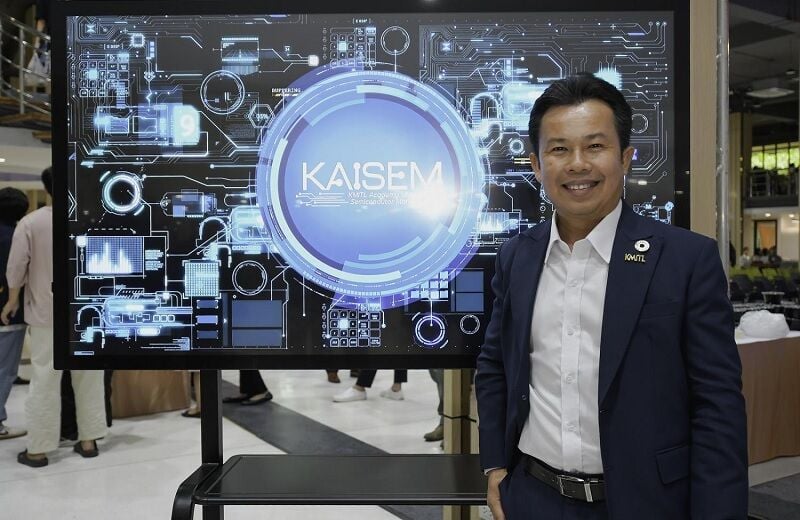Thailand opens first semiconductor R&D centre

King Mongkut’s Institute of Technology Ladkrabang (KMITL) has inaugurated Thailand’s first comprehensive semiconductor technology research and development centre, setting the stage for the nation’s enhanced role in the global supply chain.
The KMITL Academy of Innovative Semiconductor Manufacturing (KAISEM) will function as a central laboratory, uniting experts from diverse fields to collaborate on semiconductor research, innovation, and electronic manufacturing processes. This initiative aims to equip students and professionals with the essential skills and knowledge for success in the semiconductor sector.
Thailand can attract multinational semiconductor firms by offering tax incentives, subsidies, robust infrastructure, and strong intellectual property protection. Investing in education and training will create a skilled workforce said Associate Professor, President of KMITL, Komsan Maleesee.
Amidst geopolitical risks prompting countries to diversify their semiconductor supply chains, Thailand has the potential to position itself as a stable alternative manufacturing hub, Komsan noted. By developing curricula and research programmes tailored to the semiconductor sector’s needs, KAISEM aims to keep Thailand’s workforce globally competitive.
The centre will support R&D projects addressing specific challenges in semiconductor manufacturing, spanning materials science to process engineering, said Komsan.
“This will strengthen Thailand’s semiconductor electronics industry, which is the cornerstone of modern electronics. Additionally, KAISEM will serve as a hub for education and personnel development.”
Collaboration agreement
KMITL also entered into a collaboration agreement with National Instruments (NI), a global leader in automated test and measurement systems, to enhance KAISEM’s academic programmes and research capabilities, enabling the faculty to achieve global standards.
Strategic partnerships with semiconductor companies, universities, and research organisations will allow Thailand to access advanced technologies and best practices. These collaborations could involve joint ventures, R&D projects, and talent exchanges, enhancing Thailand’s growing manufacturing capabilities.
The NI Vice-President for APAC sales, Joseph Soo, highlighted that Southeast Asia is uniquely positioned with a well-established and diverse semiconductor system. The region stands as the world’s second-largest semiconductor exporter, accounting for 22.5% of global semiconductor exports. Thailand recorded 800 billion baht in semiconductor exports last year.
Komsan commented on the future of the global semiconductor industry, noting it will be shaped by rapid technological advancements and shifting geopolitical dynamics. Semiconductors, being the heart and brain of all digital devices, are increasingly seen as strategic assets, central to national security and economic growth.
“We will likely witness the emergence of new regional hubs, with countries like Thailand playing a critical role in the global supply chain.”
The ongoing demand for more sophisticated semiconductor technologies, driven by innovations in artificial intelligence, quantum computing, and 5G wireless broadband technology, will necessitate continued investment in research and development, Komsan observed.
Countries that invest in R&D, maintain stable political environments, and build collaborative ecosystems will lead the next wave of semiconductor advancements as he added, reported Bangkok Post.
Latest Thailand News
Follow The Thaiger on Google News:


























